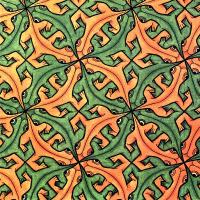Sporočila: 27
Jezik: English
michaleo (Prikaži profil) 23. december 2013 16:39:20
jismith1989:A problem can occur when people try to describe any languge using terminology of another language. However, commonly features of parts of speech vary from one langauge to another and there is nothing universal what we can call preposition (przyimek in Polish). For example, according to the Polish terminology, the word kiel is a conjuction (spójnik in Polish) like kaj or a preposition like en. The difference is quite fluid.michaleo:Accusative, depending on the meaning, can or cannot be used after kiel. I suggest to read Kiel kaj ol kune kun rolmontrilojOh, I didn't know that, thanks.
Obviously, the rule that N is never used after a preposition except to show movement is wrong then. Are there any more exceptions, does anyone know?
RiotNrrd (Prikaži profil) 23. december 2013 18:18:00
jismith1989 (Prikaži profil) 23. december 2013 19:17:03
RiotNrrd:Kiel is not a preposition. It is a correlative. Not only can the accusative follow correlatives, some of the correlatives can even exhibit the accusative -n themselves (although this particular one cannot).I'm just following Wiktionary, which labels it a preposition (and adverb). I think you're right that it's a correlative and conjunction as well as a preposition and adverb though, to the extent that these somewhat artificial labels are truly descriptive, as Michaelo says.
RiotNrrd (Prikaži profil) 23. december 2013 22:47:24
jismith1989:I'm just following Wiktionary, which labels it a preposition (and adverb)...That is the problem with wiki's. Anyone can edit them.
Kiel is not a preposition. The rules governing prepositions do not apply to kiel.
Here is a list of the Esperanto prepositions. Kiel is not among them, and that isn't the result of sloppy editing.
sudanglo (Prikaži profil) 24. december 2013 12:31:13
Or is the poet merely likening the blossoms to mountain snow?
Translation with kiel and the accusative seems to me convey the idea of a certain manner of piling, with a certain result.
Maybe, amasigi la florojn kvazaŭ ili estus monta neĝo.
makis (Prikaži profil) 05. marec 2014 04:51:52
Here's one I just read that I like:
The breeze is fresh,
the moon is so bright -
together
let's dance until dawn
as a farewell to my old age.
La venteto estas freŝa,
la luno brilas hele -
kune
ni dancu ĝis tagiĝo
kiel adiaŭo al mia maljuneco.
Rujo (Prikaži profil) 05. marec 2014 13:10:52
According PIV, KIEL functions like subjunctive: “4 Subjunkcio, enkondukanta samgradigan komparon, por klarigi, ilustri, kvalifiki: a) agon: barakti kiel fiŝo ekster la akvoZ; kiel ponardo en min penetras ĉiu vortoZ; li komprenas predikon, kiel bovo muzikonZ; li tremas kiel aŭtuna ventoZ; trakti iun kiel krimulon; li estas punita, kiel li meritas; ili ne restigis tian riĉecon, kiel la homoj asertisZ; ĉio okazis, kiel mi deziris; ŝi kuris kiel rabiaZ; mi tiel volas manĝi, kiel mi ankoraŭ neniam volisZ;”
I greatly appreciate this forum. You always bring interesting subjects for analysis.




